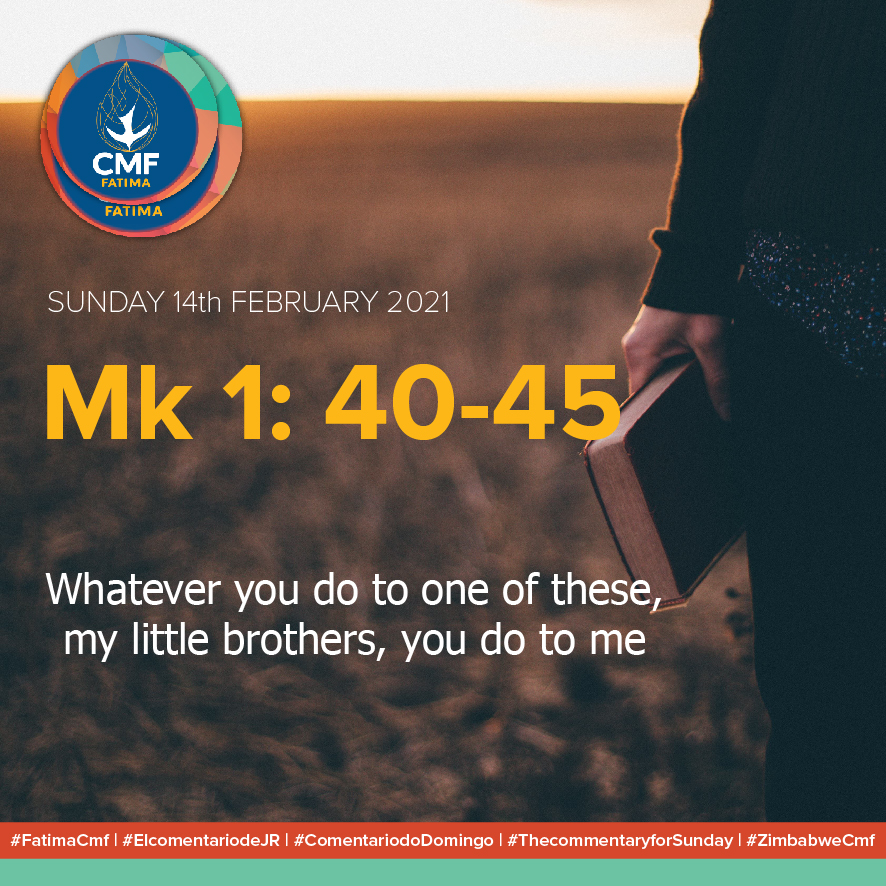Mark 1, 40-45:
February 14th, 2021 (6th OT B)
It is possible that many of us have been witnesses or protagonists in situations similar to the one that happened one Sunday in a certain parish during the children’s Mass. The Eucharist was just beginning when a person came in with bandages around his head, poorly dressed, somewhat dirty and with a rather strange “look”. He went to sit in a pew where a family was sitting, a married couple with two children of 7 or 8 years old. They looked at him, got up and went to another bench. The poor man, seeing himself alone, went to another bench and the same thing happened: they moved away from him.
After the reading of the Gospel, the priest asked him to come up to the altar, took off his bandages and dirty clothes, cleaned a spot on his face, and to the surprise of many, it was one of the catechists, disguised for the occasion.
This kind of reaction often happens to certain types of people: homeless people, gypsies. It seems that we are a bit afraid of them. It also happened in Jesus’ time. Even the law commanded that these people should live apart. But Jesus is going to show what the attitude of the Christian should be: he does not flee, he does not reject them, but touches them. And from the leper’s faith comes healing. And Jesus reintegrates him into the community.
Jesus put himself in the place of the other and treated him as he would have liked to be treated. And he says to us: “whatever you do to one of these, my little brothers, you do to me”.
Do I go by appearances alone, do I see in others a beloved child of God, do I treat them as brothers and sisters?
This Sunday some places are celebrating a campaign against hunger. Let us be aware that in these times of pandemic there are many families who find themselves in a very difficult situation. Let us not miss the opportunity to lend a hand to all those who need us.
Juan Ramón Gómez Pascual, cmf






